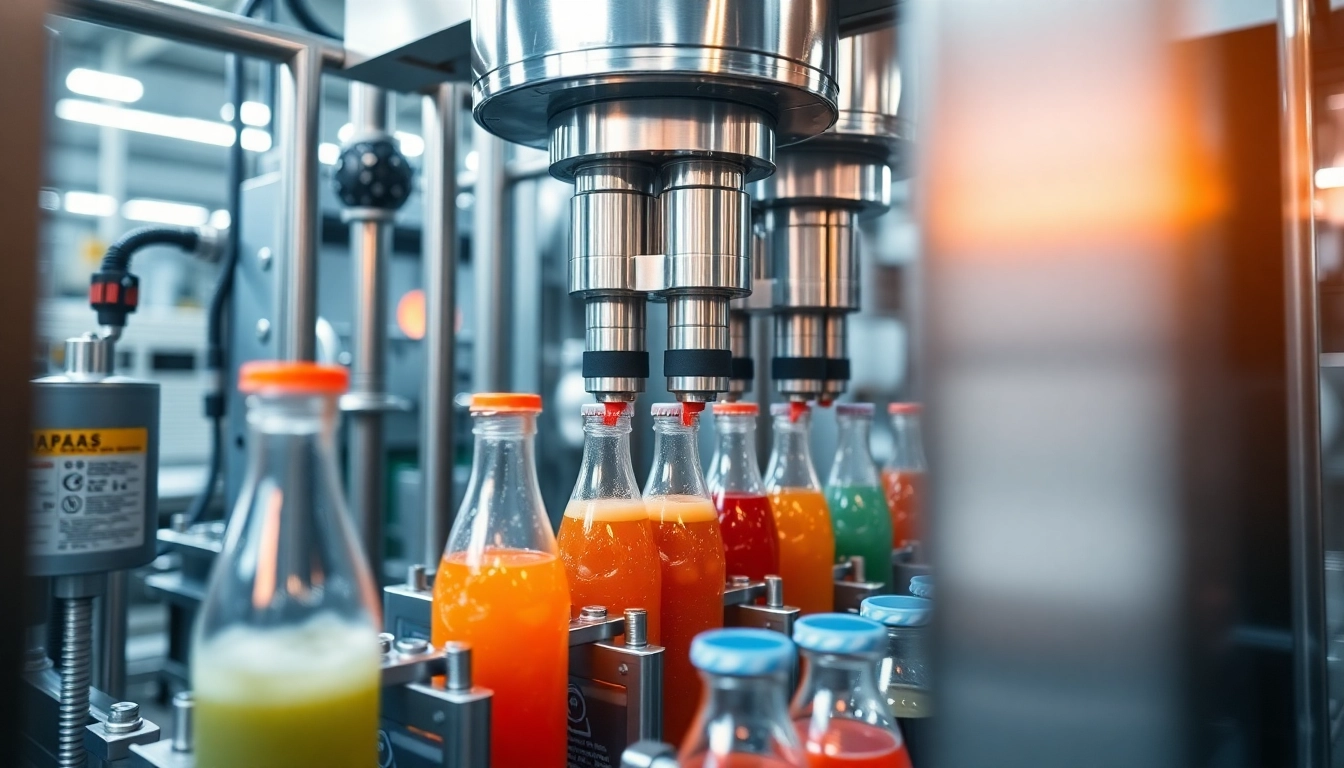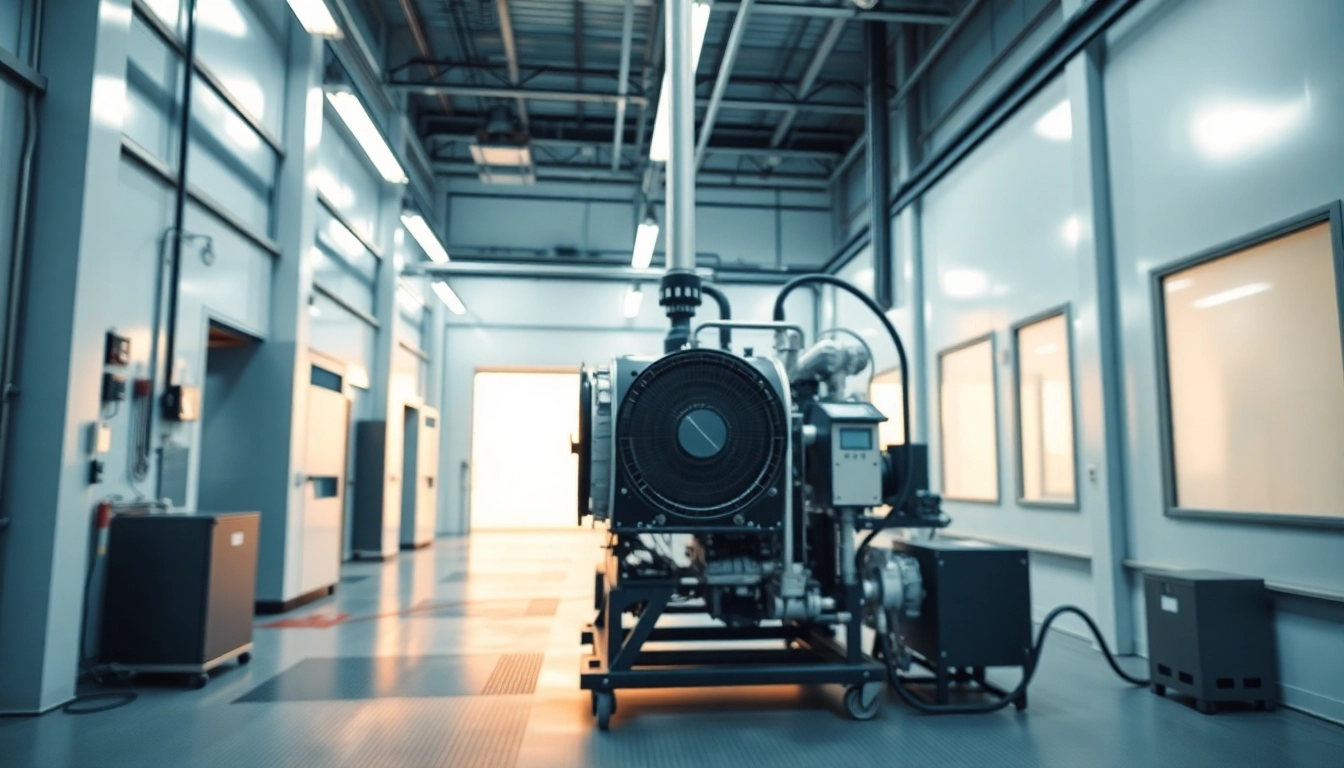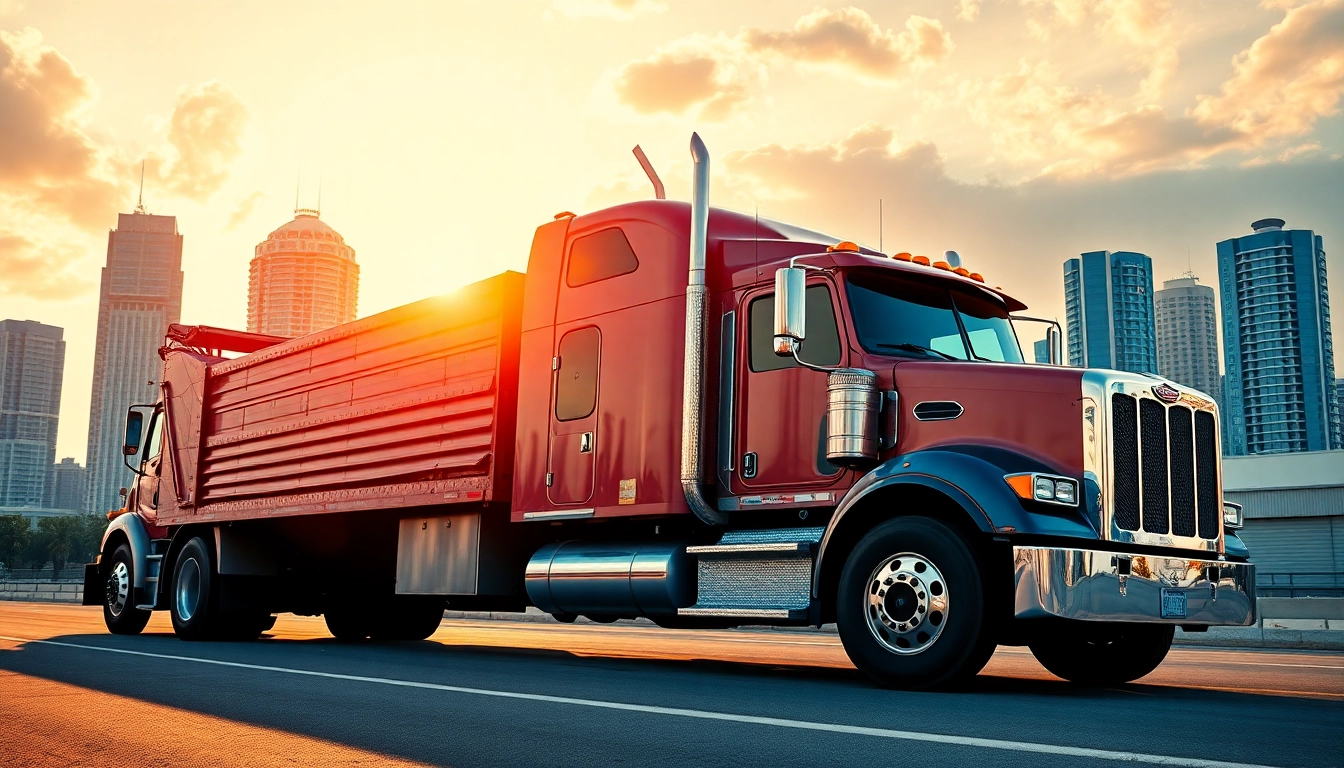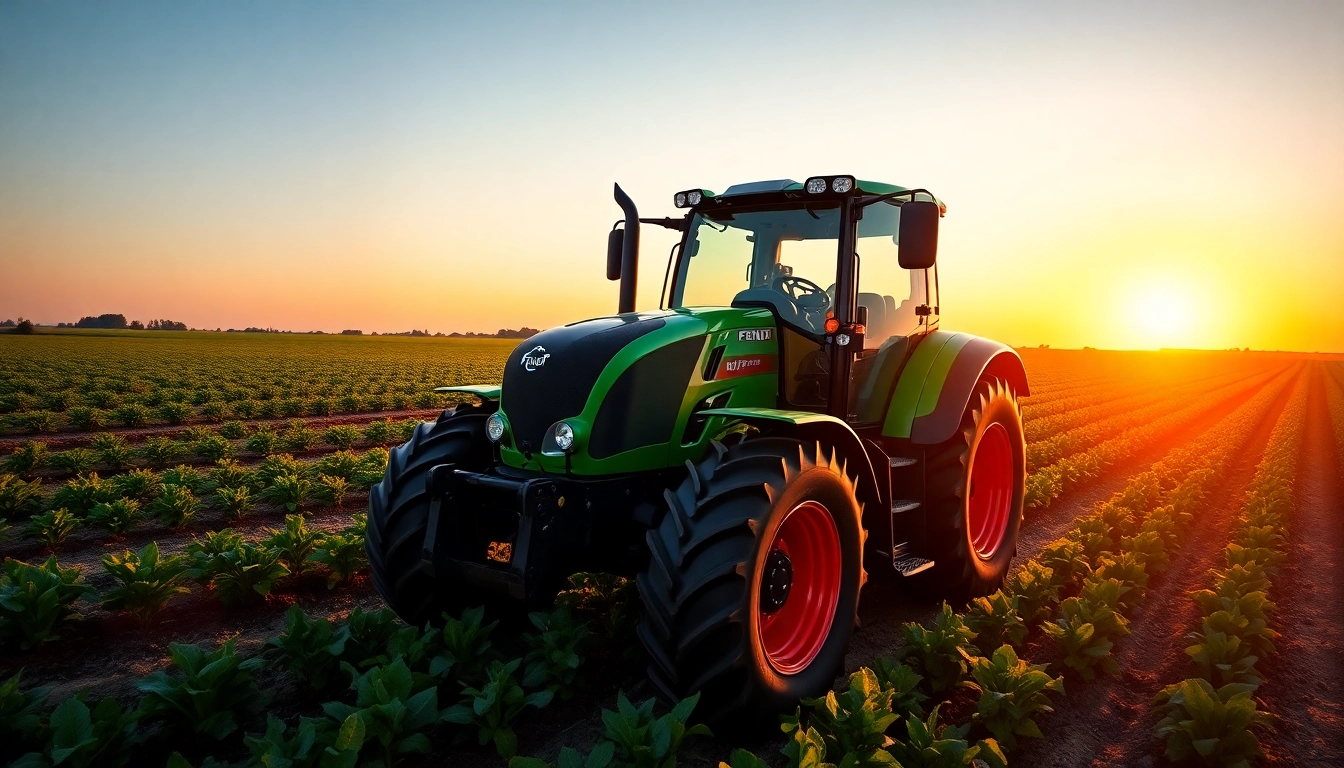Understanding Filling Machine Technologies
In the ever-evolving landscape of manufacturing and packaging, filling machines play a pivotal role in ensuring efficiency and productivity. With a myriad of options available, businesses need to understand the different technologies, features, and applications these machines offer to make informed purchasing decisions. This comprehensive guide explores the various types of filling machines, key features to consider, and their common applications across industries. For detailed specifications and options, consider consulting established Filling Machine Manufacturers.
Types of Filling Machines
Filling machines can be categorized based on various attributes, including the type of material they handle, the technology you choose, and the intended application. Here are some prevalent types:
- Volumetric Fillers: These machines dispense a set volume of liquid or solids based on predetermined measurements. They are prevalent in industries dealing with liquids, powders, and granules, ensuring high accuracy and repeatability.
- Piston Fillers: Ideal for thicker, more viscous products, piston fillers use a piston to suck product from a reservoir and push it into containers. Their adaptability to different viscosities makes them a popular choice across various sectors.
- Gravity Fillers: Operating under gravity, these machines allow products to flow into containers through gravity, making them suitable for low-viscosity liquids. Commonly found in bottling plants, they deliver efficiency for free-flowing substances.
- Pressure Fillers: These are similar to gravity fillers, but they utilize pressure in the container to drive the liquid into the bottle. They’re suitable for carbonated beverages and other liquids where maintaining pressure is necessary.
- Aseptic Fillers: Used primarily in the food and beverage industry, these machines ensure that products are filled in a sterile environment, thereby prolonging shelf life and maintaining product integrity.
- Automatic and Semi-Automatic Filling Machines: These machines vary in automation levels; automatic machines require minimal operator intervention, while semi-automatics require manual input for some operations.
Key Features to Look for
Choosing the right filling machine for your needs involves evaluating certain features that enhance functionality, efficiency, and ease of use. Here are key features to consider:
- Speed: The machine’s filling speed, often measured in containers per minute, is critical. Assess your production needs against the machine’s specifications.
- Accuracy: A high filling accuracy reduces waste and ensures compliance with industry standards. Look for machines that have mechanisms for precision control.
- Easiness of Use: User-friendly controls and interfaces simplify operations and reduce the training time for personnel.
- Compatibility with Container Types: Ensure the machine can handle the specific containers you plan to use, whether they are bottles, jars, pouches, or cartons.
- Material Compatibility: Ensure that the machine materials can withstand the products being filled, especially when dealing with corrosive or high-temperature substances.
- Cleaning and Maintenance: Consider systems that provide easy access for cleaning and maintenance, particularly for those functioning in hygienic or sterile conditions.
Common Applications Across Industries
The versatility of filling machines allows their application in various sectors, including:
- Food and Beverage: Used for packaging liquids, solids, powders, and granulated materials, filling machines ensure products meet safety and quality standards.
- Pharmaceuticals: Accuracy and sterilization are crucial in this industry, with filling machines being responsible for dispensing medicines and supplements.
- Cosmetics: Filling machines cater to the precise needs of cosmetic products like creams, lotions, and serums, typically involving various viscosities.
- Chemicals: Industrial sectors use filling machines for liquids, powders, and pastes, ensuring that hazardous materials are handled safely.
- Household Products: From detergents to cleaning supplies, these machines offer practical solutions for filling tasks across various container types.
Top Filling Machine Manufacturers in the Market
The market for filling machines is populated by numerous manufacturers offering various models tailored to specific industry needs. In this section, we highlight some of the top players and their unique selling points.
Highlights of Leading Brands
When searching for a filling machine, it’s essential to consider leading brands known for their innovation, reliability, and service quality. Some of the prominent manufacturers include:
- Accutek Packaging Equipment Company: With a robust range of filling machines, this brand stands out for its adaptability and variety including piston and gravity fillers.
- Cozzoli Machine Company: Known for high-quality filling systems tailored to liquid products, they cater to diverse application needs, emphasizing customer service.
- Volumetric Technologies: This company prides itself on manufacturing American-made filling machines, focusing on reliability and durability.
- Oden Machinery: Offers extensive filling systems suitable for various applications, showcasing expertise across multiple industries.
- E-PAK Machinery: Known for producing efficient liquid filling machines designed for ease of use and maintenance, they provide effective solutions for the bottling industry.
- Fogg Filler: Specializing in filling, capping, and rinsing equipment, Fogg focuses on high-quality manufacturing to serve various industries.
Unique Selling Points of Each Manufacturer
Each of the manufacturers mentioned brings unique value propositions to the table:
- Accutek: Offers customizable solutions and extensive support services, which are crucial for businesses requiring tailored systems.
- Cozzoli: Their commitment to quality and precise engineering ensures that their machines perform optimally under heavy workloads.
- Volumetric Technologies: Emphasizes American manufacturing and design, appealing to clients preferring domestic suppliers.
- Oden Machinery: Provides a broad spectrum of systems that address various aspects of bottling, making it a one-stop shop for businesses.
- E-PAK: Focuses on user-friendly machines that reduce downtime, making them ideal for businesses aiming to maximize productivity.
- Fogg: Their specialty in liquid filling systems allows sophisticated solutions that handle sensitive products while ensuring filling accuracy.
Comparative Analysis of Technologies Offered
When it comes to technology, different brands prioritize various features that can influence a buyer’s choice. Here’s a comparative analysis:
Filling Technology
Some manufacturers provide advanced filling technologies, such as:
- Volumetric Technologies: Focuses on volumetric filling methods that reduce waste and enhance speed.
- Accutek: Blends mechanical and digital technology to enhance filling precision and control.
- Cozzoli: Their machines often include advanced features for handling various product consistencies.
Automation Capabilities
Automation can significantly improve production efficiency:
- E-PAK: Offers machines that integrate seamlessly into automated production lines.
- Fogg: Their automated systems reduce manual intervention, enhancing safety and operational efficiency.
Maintenance and Support
Understanding support offerings can affect long-term operations:
- Oden Machinery: Provides extensive customer support and maintenance plans to ensure long-term reliability.
- Fogg: Known for a solid warranty and service agreements that ensure minimal machine downtime.
Investment Considerations for Businesses
Investing in a filling machine isn’t just about the initial purchase cost; various factors can significantly impact the overall investment. Here’s what you need to know.
Cost vs. Value Analysis
When evaluating whether to purchase a filling machine, it’s critical to balance cost against the expected value. Here are some considerations:
- Purchase Costs: The initial price can vary significantly based on brand, technology, and features. It’s essential to determine your budget and priority needs before starting negotiations.
- Operational Costs: Look beyond the purchase price to the associated operational costs, which can include energy consumption, labor costs, and product waste.
- Return on Investment (ROI): Calculate expected ROI by measuring potential production increases, reduced labor costs, and improved accuracy and efficiency.
Long-term Maintenance and Support
Maintenance requirements vary by machine and can have ongoing costs:
- Regular Maintenance: Establishing a regular preventive maintenance schedule can identify potential problems before they escalate, ensuring smooth operations.
- Part Availability: Consider manufacturers that offer readily available parts and services to minimize downtime. Companies like E-PAK and Fogg are known for their accessible parts supplies.
- Technical Support: Determine the level of technical support available, such as training for staff, operational troubleshooting assistance, and emergency support services.
Financing Options for Equipment Purchase
Many businesses explore financing options when considering large investments in filling machines:
- Leasing vs. Buying: Leasing provides an opportunity to minimize upfront costs and manage cash flow, whereas purchasing offers long-term ownership benefits.
- Financing from Manufacturers: Some manufacturers offer financing plans or partnerships with lending institutions, providing tailored financial solutions to fit business needs.
- Grants and Subsidies: Investigate if local governments or trade organizations provide financial assistance for upgrading machinery.
Industry Trends in Filling Machine Development
The filling machine industry experiences rapid technological advancements. Understanding these trends can help businesses prepare for the future.
Impact of Automation and AI
Automation and artificial intelligence are reshaping how filling machines operate, leading to several improvements:
- Increased Efficiency: AI-driven algorithms can optimize filling processes, reducing time and waste while adhering to strict quality standards.
- Predictive Maintenance: Machine learning can help anticipate equipment issues before they happen, reducing downtime and maintenance costs.
Sustainability in Packaging Solutions
With growing environmental concerns, sustainability has become a focal point:
- Eco-Friendly Materials: Manufacturers are increasingly using sustainable materials in their filling machines and processes.
- Waste Reduction: Advanced filling machines now minimize product waste during the filling process, contributing to more sustainable operations.
Future Innovations to Watch For
Innovation in filling technology is expected to continue driving the market forward. Key advancements include:
- Smart Technology Integration: The rise of IoT (Internet of Things) allows for more connected systems that can communicate performance metrics in real time.
- Enhanced User Interfaces: New user interfaces that use touch screens and advanced data analytics to provide immediate feedback for operators.
- Modular Systems: These systems allow customization and scalability, enabling manufacturers to adapt operations quickly to changing demands.
Choosing the Right Manufacturer for Your Needs
Selecting the right manufacturer is as critical as choosing the right machine. Here’s how businesses can navigate this decision effectively.
Questions to Ask Potential Suppliers
Before committing to a manufacturer, consider asking these key questions:
- What warranty and support options do you provide?
- Can you provide case studies or testimonials from similar industries?
- How do you handle shipping and installation, and what are the associated costs?
- What is your machine’s average turnaround time for parts and service?
- Are there financing options available for long-term purchases?
Evaluating Customer Service and Support
Customer service plays a crucial role in ensuring smooth operations:
- Response Times: Assess how quickly the company responds to inquiries and warranty issues.
- Training Programs: Implementing a comprehensive training program can help decrease operational errors and increase machine effectiveness.
- Post-Sale Support: Ongoing technical support can ensure the longevity of your filling machinery and enhance overall performance.
Case Studies: Successful Installations
Real-world examples highlight the effectiveness of specific filling machines in various settings:
- Food and Beverage Sector: A brewery optimized production by upgrading to advanced volumetric filling machines, resulting in a 30% increase in efficiency while maintaining compliance.
- Pharmaceutical Industry: A pharmaceutical manufacturer adopted an aseptic filling machine that enabled them to meet stringent health standards while expanding their production capabilities significantly.
- Cosmetic Industry: A cosmetics company transitioned to rotary filling systems, enhancing their ability to fill tubes and bottles with varying viscosities promptly and accurately.



